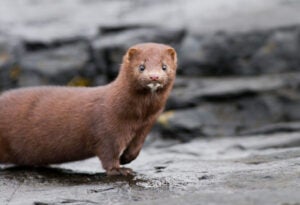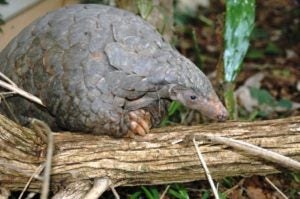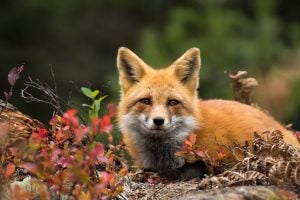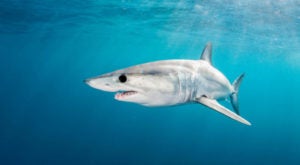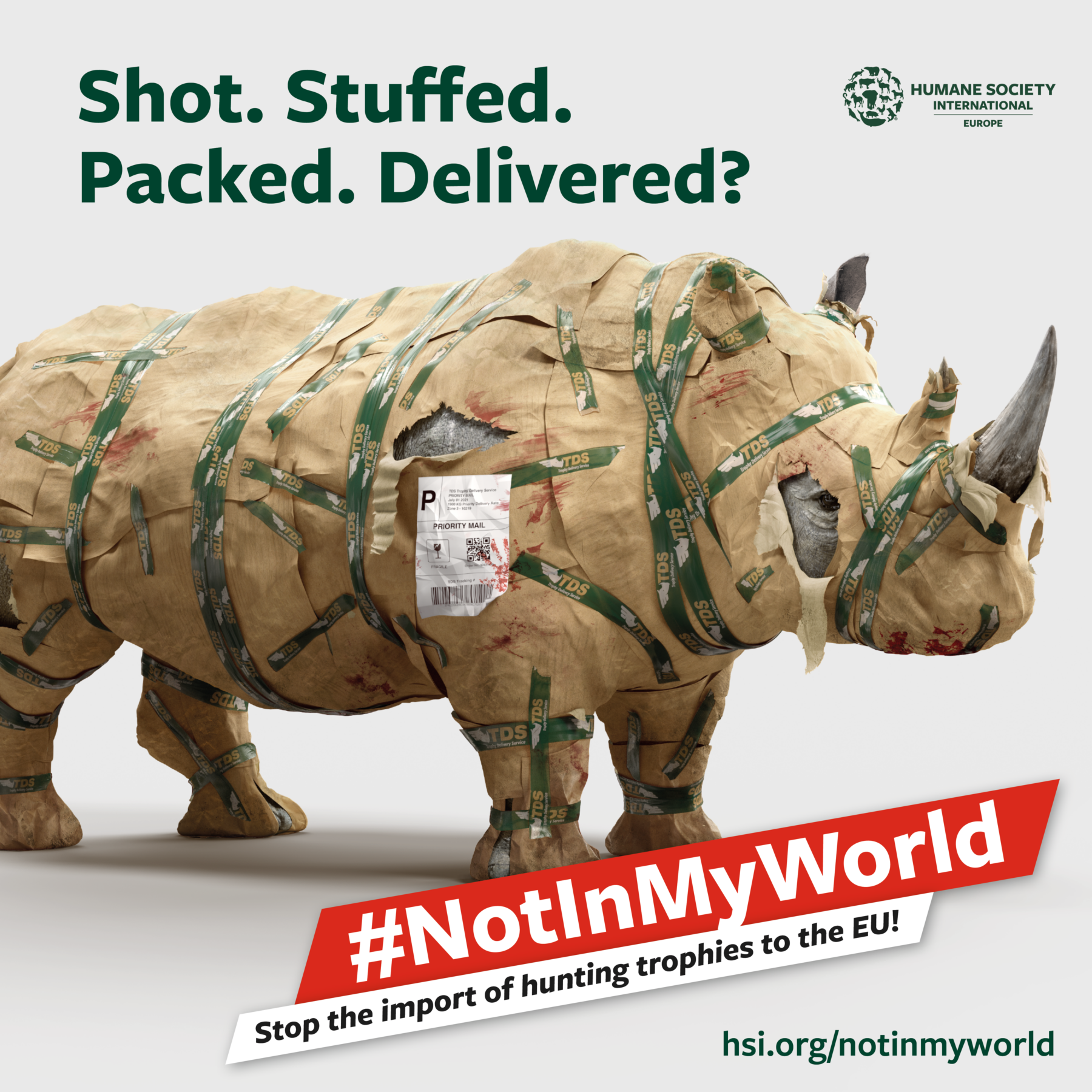
BRUSSELS—With the European Union the world’s second largest importer of hunting trophies after the United States, animal protection group Humane Society International/Europe is stepping up its fight with a new hard-hitting campaign. Its striking #NotInMyWorld campaign images featuring a trophy hunted rhinoceros wrapped and delivered in brown parcel paper, will appear across social media this month, and on buses and billboards in selected European cities in October, exposing the shocking reality that thousands of internationally protected species are being shot for fun in foreign countries and imported into the EU as trophies. HSI/Europe research reveals that nearly 15,000 hunting trophies of 73 threatened and endangered species were imported into the EU between 2014 and 2018.
#NotInMyWorld calls on EU citizens and politicians to take action to stop the EU’s involvement in this grotesque and unsustainable killing. The campaign is running in tandem with a global petition to the European Parliament.
Among the iconic species being imported into the EU are the African elephant, African lion, rhinoceros, polar bear, lynx, walrus, captive bred tigers and the scimitar oryx, a species extinct in the wild. HSI/Europe says although the killing of imperiled wildlife by trophy hunters in countries far away may feel like a remote issue, for as long as EU countries allow the trophies to be imported, EU countries are complicit in this brutal hobby. HSI/Europe hopes its eye-catching campaign will help urge EU policy makers to ban the import and export of trophies from endangered and threatened species.
Adeline Fischer, HSI/Europe’s trophy hunting communications manager, says: “Trophy hunting has no place in modern society. The gratuitous killing of wild animals so that hunters can bring home macabre trophies of their body parts, such as elephant foot flower pots, giraffe neck floor lamps and polar bear rugs, not only shows a total lack of respect for these magnificent creatures, but also adversely impacts wild populations, exacerbates other pressures such as poaching and fails to deliver meaningful socio-economic benefits. EU citizens will be shocked to learn that the EU is the second biggest importer of hunting trophies in the world. Our campaign exposes the grim reality of the EU’s part in this cruelty. Animals are shot, stuffed, packed and delivered as trophies to Europe’s doorsteps, and citizens and politicians can and must stop it. It’s time for us all to say #NotInMyWorld.”
Although opinion polls reveal that 85% of EU citizens oppose trophy hunting of internationally protected species and 81% want to end trophy imports, many Europeans will be unaware that it is legally permitted for EU citizens to hunt threatened and endangered species in foreign countries and bring back home their stuffed body or body parts.
EU trophy import statistics for individual animals (2014-2018), include:
- 3,119 Hartmann’s mountain zebra,
- 1,751 chacma baboon,
- 1,415 American black bear,
- 1,056 brown bear,
- 952 African elephant,
- 889 African lion, of which 62 were captive-bred lions,
- 839 African leopard,
- 794 hippopotamus,
- 480 caracal,
- 415 red lechwe,
- 297 cheetah—the EU is the largest importer of cheetah trophies in the world,
- 65 polar bears,
- Six trophies of critically endangered black rhinos.
Germany, Spain, Denmark, Austria, Sweden, France, Poland, Hungary, the Czech Republic and Slovakia are the top trophy importing EU Member States, with Namibia, South Africa, Canada, Russia, Argentina, Kyrgyzstan and the U.S. representing the top exporting countries to the EU. Spain, Poland, Hungary, Germany and the Czech Republic are the top importers of captive lion trophies from South Africa.
“The aim of the campaign is to raise awareness about how cruel trophy hunting is. The fact that people visit other countries to shoot endangered species for entertainment and a thrill, and that the resulting trophies can be imported here in Europe, is outrageous. We don’t want our world to be like that,” says Thomas Candussi, lead conceptualist at offroad communications, the Austrian marketing agency that developed the campaign.
Only a few European countries have taken limited action to curb hunting trophy imports. In 2015 France banned lion trophy imports and in 2016 the Netherlands banned trophy imports of over 200 species. Only a few European countries have taken limited action to curb hunting trophy imports. In 2015 France banned lion trophy imports and in 2016 the Netherlands banned trophy imports of over 200 species. In March this year the Finnish parliament presented a motion proposing a trophy import ban, and in May the UK Government recommitted to a ban on the import of hunting trophies from endangered species.
Germany is Europe’s top importing country. Sylvie Kremerskothen Gleason, Germany director for Humane Society International/Europe, says: “EU trophy hunters kill for kicks many thousands of wild animals around the globe, with Germany being the main destination for trophies in the EU. In addition to the cruelty, it is irresponsible to allow rich elites to shoot imperiled species for pure pleasure. Being able to have these gruesome body parts shot, stuffed, packed and shipped home for display is a major motivation for these hunters, so if more EU countries were to ban trophy imports, it would effectively help stop the killing. We urge Germany and all EU nations to protect wild species from being shot for fun overseas and flown to the EU for gruesome display, by introducing an import ban now.“
ENDS
Media Contacts:
- Adeline Fischer, EU trophy hunting communication manager: afischer@hsi.org
- Wendy Higgins, director of international media: whiggins@hsi.org



